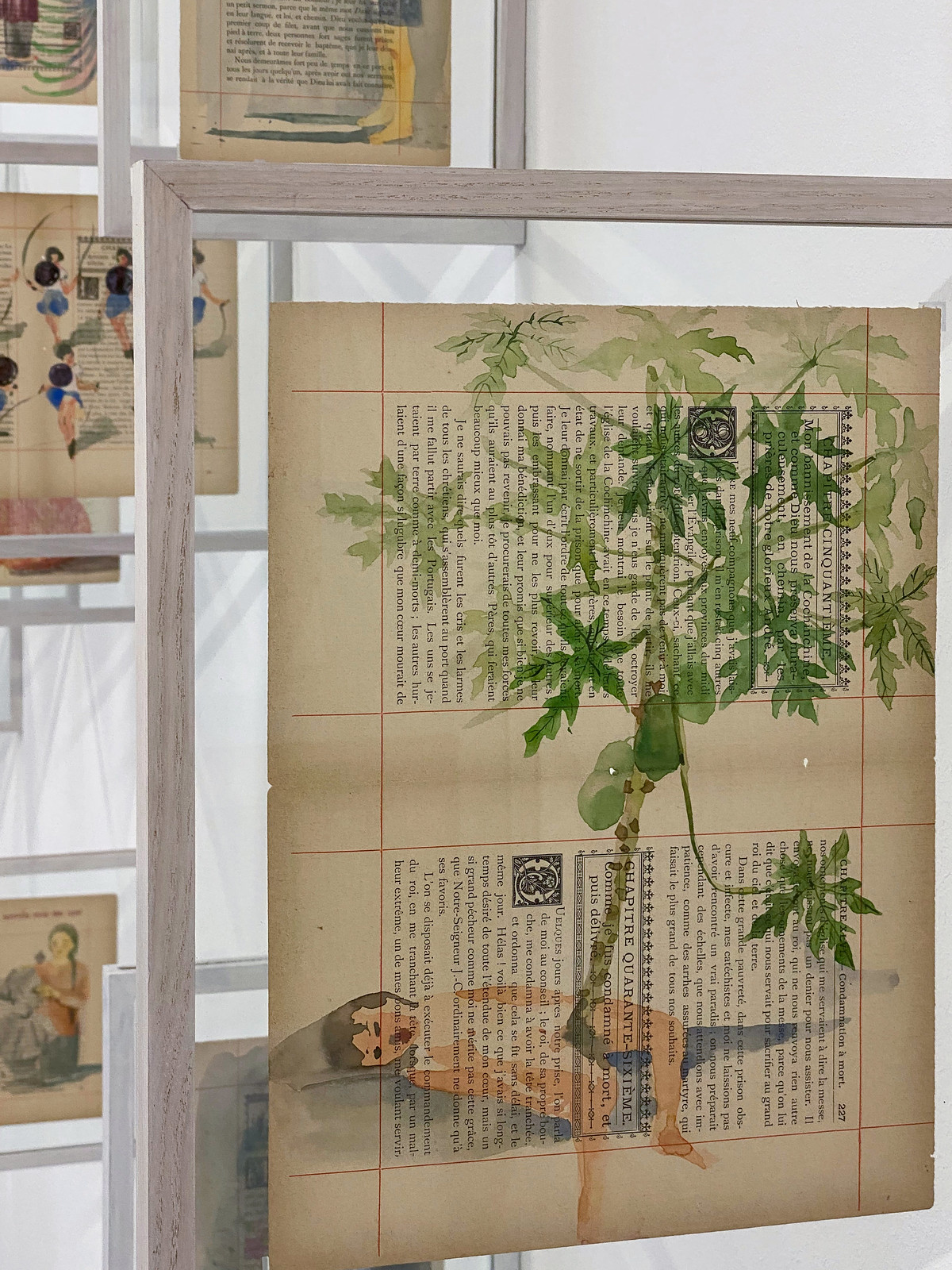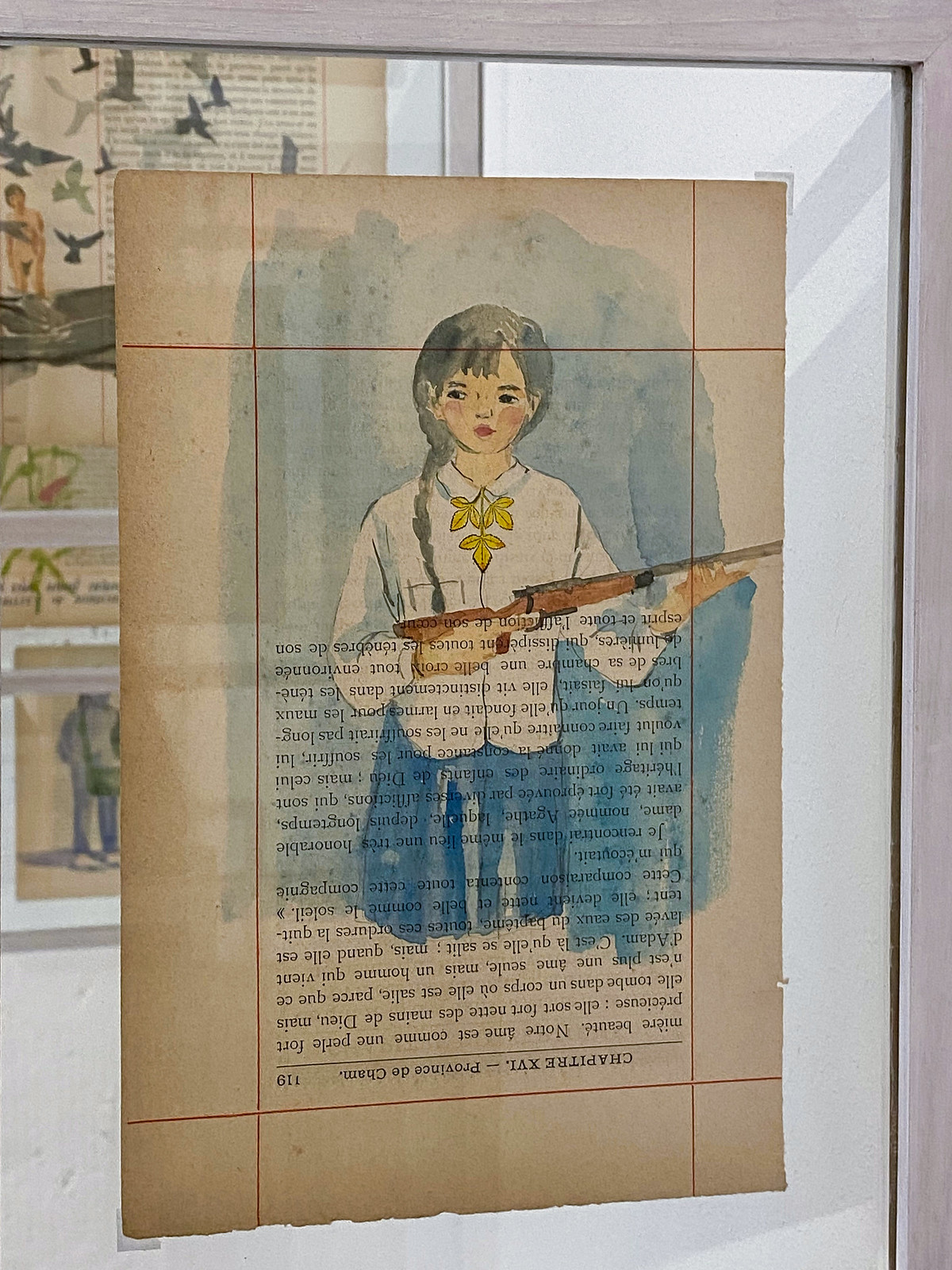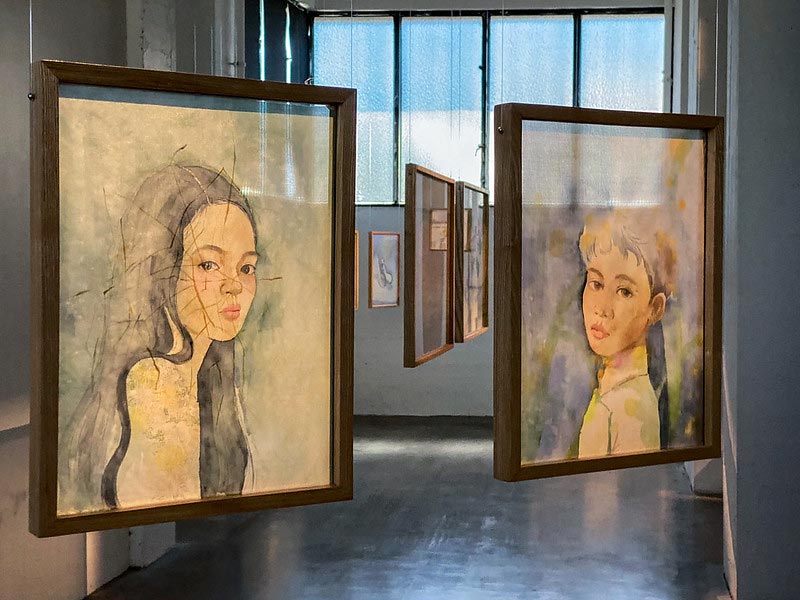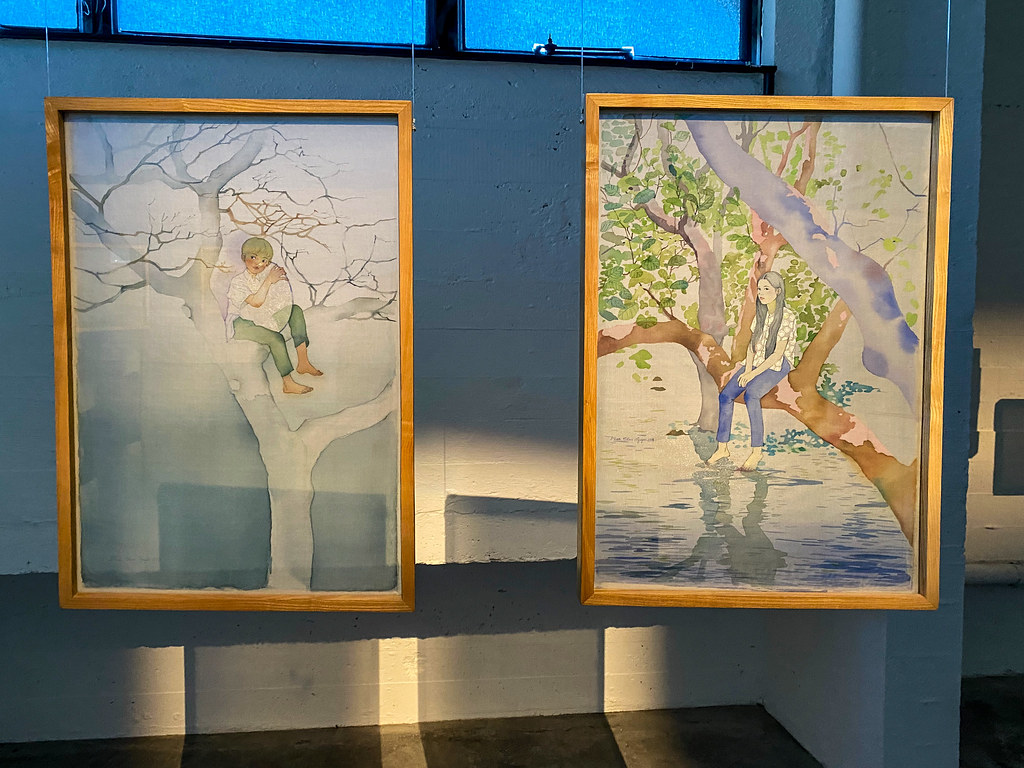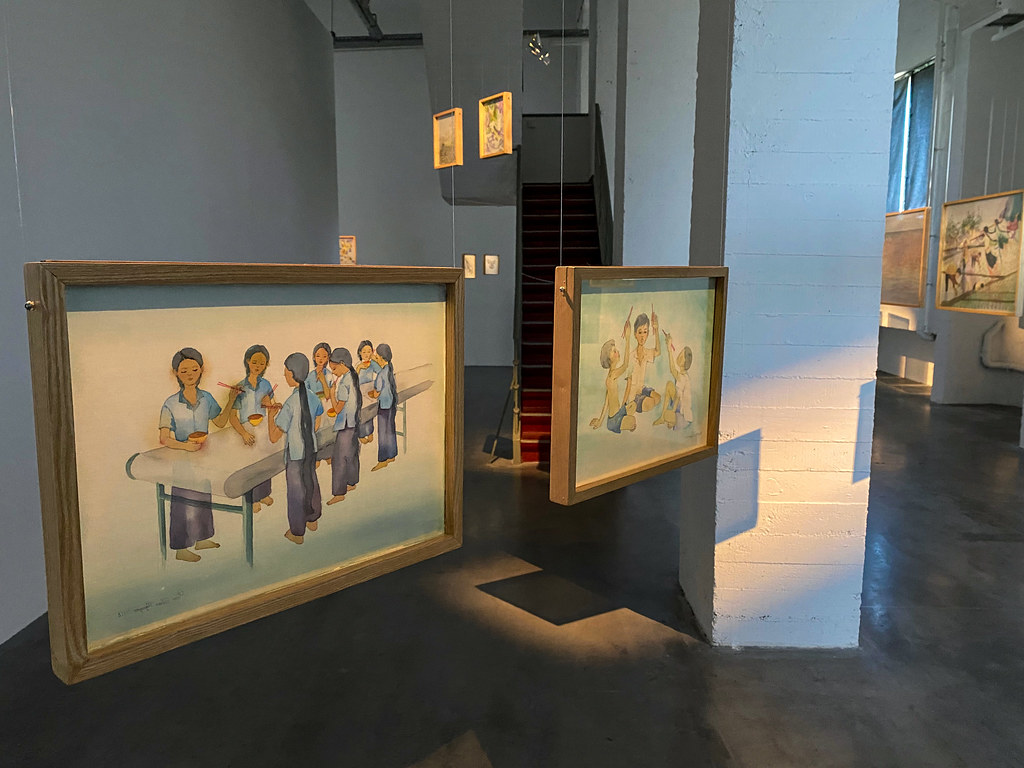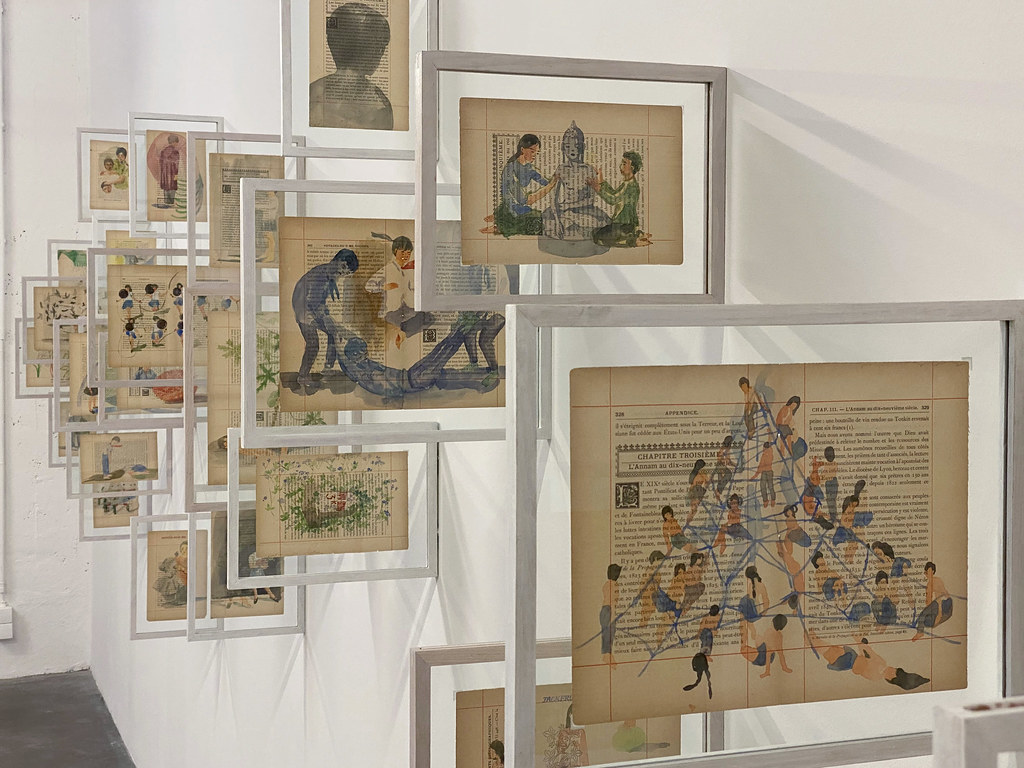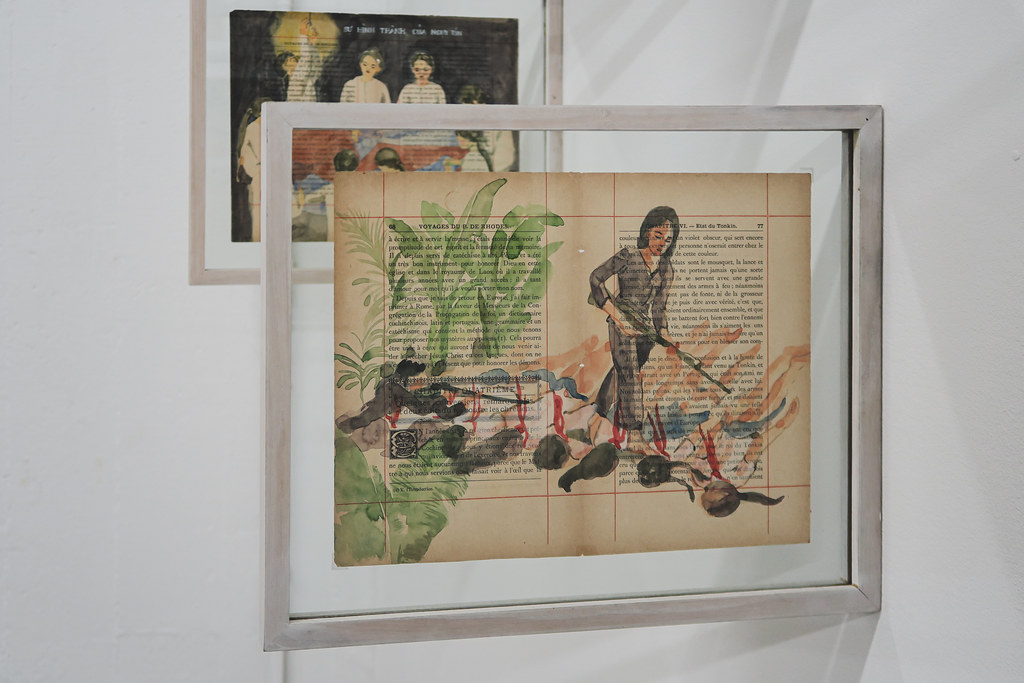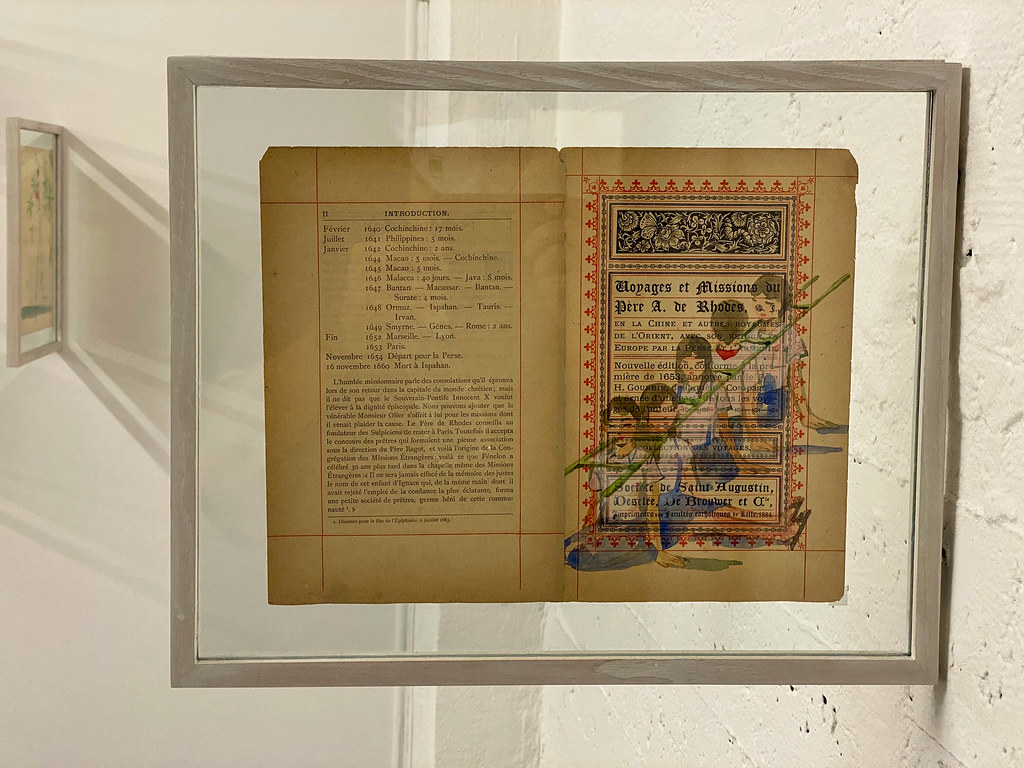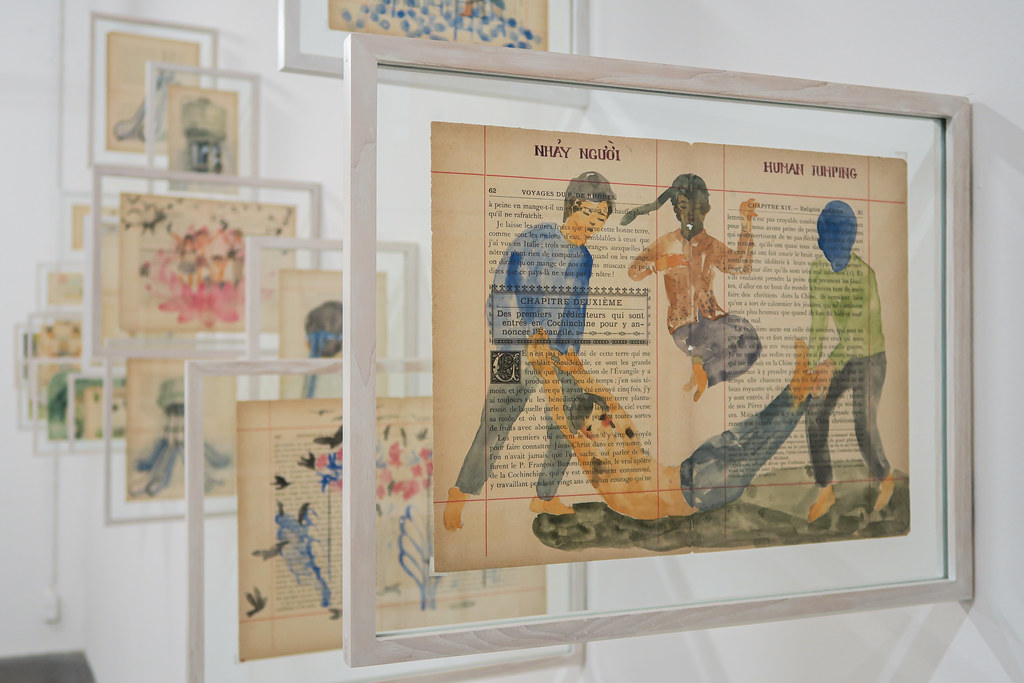Born in Vietnam, Thao Nguyen Phan is a multimedia artist who draws inspiration from the rich and tumultuous history of her country of origin. Monsoon Melody is an exhibition that shows three of her most recent projects: Tropical Siesta (2017), Mute Grain (2019) and Becoming Alluvium (2019) which are video installations accompanied by paintings and drawings. The inspiration is taken from the narrative of Vietnam and in particular its turbulent history during the French and Japanese occupation as well as the repression under the early era of communism. the paintings that accompany the films are using traditional techniques such as lacquer painting, silk painting or watercolor in a critical and contemporary way.
Dream of March and August
This series of silk paintings accompanies the film ‘Mute Grain’, made by the artist in 2019. The film and the accompanying paintings take as their starting point a 1945 famine that took place in Vietnam and is believed to have caused the death of over 2 million people.
‘Dream of March and August’, takes its name from the two protagonists of the film ‘Mute Grain’, a brother and a sister who are separated by the death of the sister and they exist in parallel worlds, one living, one dead and they are always searching for one another.
These beautiful dreamlike paintings are hung in couplets as if brother and sister are always side by side, supporting one another while being divided.
There are some 34 silk paintings in this series and they are suspended in pairs, they are spot lit, the light travels through them, they have a certain kind of votive or devotional quality.
They are very slow somehow in their pacing, they are extremely beautiful, they are almost naïve, there is almost a kind of sentimentality to the imagery, but as always in Thao’s work it is undercut by a hint of violence, by certain jarring notes that make us question what story it is she’s trying to tell.
There’s often these strange juxtapositions of very classical or fairylike imagery with certain objects that for the artist are kind of symbols of the modernization of Vietnam, for example a conveyor belt or an escalator, these things that are kind of typical of the shopping center or the airport, these moments of transition.
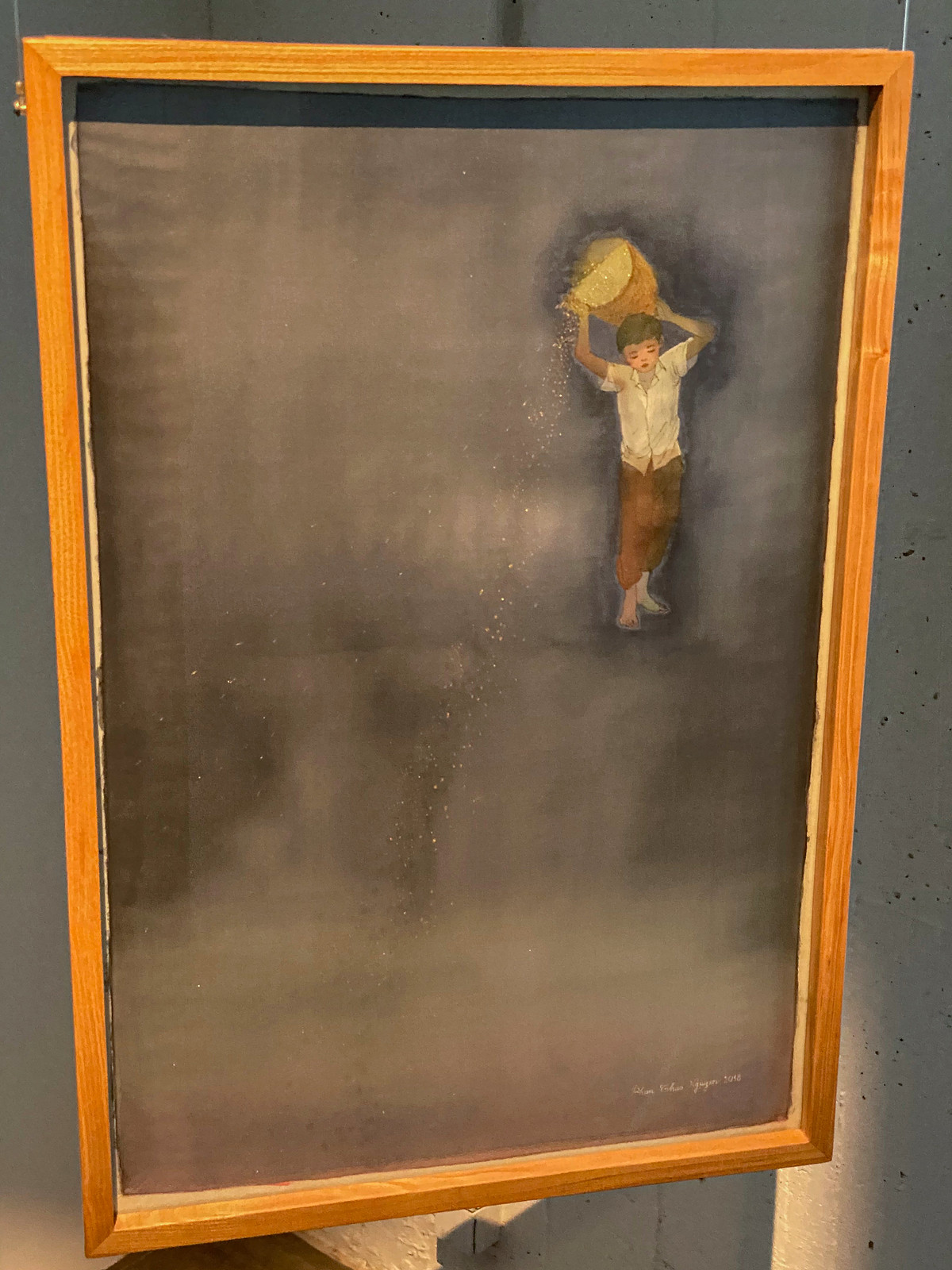
Voyages de Rhodes
In the series titled ‘Voyages de Rhodes’, Thao-Nguyên Phan takes a book written by French Jesuit missionary Alexandre de Rhodes (1591–1660) which describes his travel experiences and observations, including in the region of present-day Vietnam, during the seventeenth century as her canvas.
Phan’s visual interpretation his stories that mixes her own paintings, which she places on particular pages of this book, that she has carefully removed and individually framed.
Close to a hundred pages are framed perpendicular to the wall, as if the book itself is daring to transform its own significance.
Phan’s interventions in the book interweave different narratives that sit between realism and fantasy.
Reflecting upon the problematic communist agrarian reforms in post-war Vietnam that led to the redistribution of land and collective farming.
